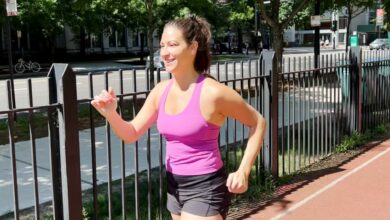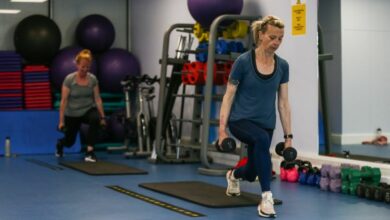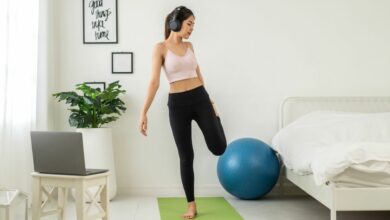
It seems exercising the body could also exercise the mind, with a new study reporting that older adults who take more steps by either walking or jogging perform better on memory tasks than those who are less active.
To test a possible link between cognitive health and physical activity, a team of researchers from the University of Boston compared 29 young adults aged 18-31 with 31 older adults aged 55-82.
By asking participants to wear a small device called an ActiGraph, the researchers could observe the walking habits of each participant, with the ActiGraph recording not only how many steps participants took, but also the vigor with which these steps were taken, and how much time was spent walking.
Meanwhile to assess memory, participants were tested on their planning, organizational, and problem-solving abilities, and also took part in a task that assessed long-term memory, learning a series of names and the face each name was associated with.
The results showed that the older participants who took more steps each day performed better in the memory tests overall, with the strongest link found between the number of steps taken and the ability to remember which name was associated with each face, something many seniors find taxing. However no link was observed between enhanced memory and number of steps in the younger subjects.
With forms of dementia such as Alzheimer's taking their toll on long-term memory, the team concluded that results have positive implications for older adults, suggesting that physical activity could have a positive effect on cognitive aging.
Scott Hayes, PhD, assistant professor of psychiatry at Boston University School of Medicine and one of the authors of the study, commented on the results saying, ''Our findings that physical activity is positively associated with memory is appealing for a variety of reasons.
Everyone knows that physical activity is a critical component to ward off obesity and cardiovascular-related disease. Knowing that a lack of physical activity may negatively impact one's memory abilities will be an additional piece of information to motivate folks to stay more active."
Although the study focused on walking, the team behind the study also encourage participating in other forms of physical exercise, noting that upping one's level of activity even in small amounts, for instance by taking the stairs instead of the elevator, could have beneficial effects.
The results of the research support the findings of many other recent studies which have looked at the effects of physical exercise on memory and cognitive health.
Earlier this year researchers at Michigan State University found a link between memory and fitness when studying a small group of 75 college students over a two-day period.
The participants were asked to study word pairs, two words that have an association, and then tested the following day to see what they could remember. Researchers found that those with the lowest fitness levels struggled the most to retain information.
And this month a UK study found that after studying 324 female twins with an average age of 55 over a period of 10 years, those that had strong leg power, which can be boosted through gym workouts, running, and walking, were in better cognitive health at the end of the 10 years than those with weaker leg power.
Dr. Claire Steves, the study's main author commented on the results saying, "It suggests that simple lifestyle changes to boost our physical activity may help to keep us both mentally and physically healthy."




